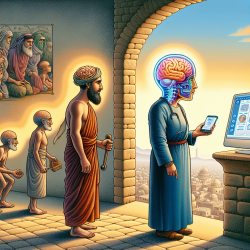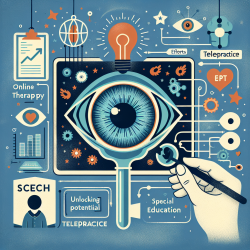Understanding Speech Loss in Cerebral Disease: Insights for Modern Practitioners
In the field of speech-language pathology, understanding the intricate relationship between cerebral disease and speech loss is crucial. The seminal research article, On the Various Forms of Loss of Speech in Cerebral Disease by H. Charlton Bastian, provides a foundational understanding that remains relevant to contemporary practice. This article, published in 1869, offers insights that can enhance the skills of practitioners today, especially those providing online therapy services, such as TinyEYE.
Key Insights from Historical Research
Bastian's research categorizes speech loss into various forms, each associated with specific cerebral conditions. Understanding these categories helps practitioners tailor their therapeutic approaches to the unique needs of each patient. The research emphasizes the importance of identifying the underlying neurological causes of speech disorders, which can significantly impact treatment outcomes.
Implementing Research Outcomes in Practice
Modern practitioners can implement the outcomes of Bastian's research in several ways:
- Comprehensive Assessment: Conduct thorough assessments to identify the specific type of speech loss and its cerebral origin. This involves using both historical insights and modern diagnostic tools.
- Customized Therapy Plans: Develop individualized therapy plans that address the specific type of speech loss, incorporating both traditional and innovative techniques.
- Continuous Education: Encourage ongoing education and training to stay updated on the latest research and methodologies in speech-language pathology.
Encouraging Further Research
The historical context provided by Bastian's work serves as a reminder of the importance of continuous research in the field. Practitioners are encouraged to delve deeper into the neurological aspects of speech disorders, exploring how modern technology can enhance our understanding and treatment of these conditions.
Conclusion
By integrating historical insights with contemporary practices, speech-language pathologists can improve their therapeutic outcomes. The foundational knowledge provided by research such as Bastian's is invaluable in shaping effective and personalized treatment plans for individuals experiencing speech loss due to cerebral disease.
To read the original research paper, please follow this link: On the Various Forms of Loss of Speech in Cerebral Disease.










